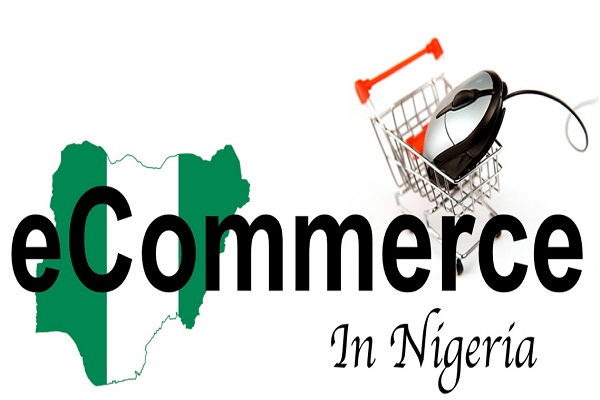Telecom
COVID-19: E-commerce companies cry out under weight of restrictions by Govt security operatives

At a time when global players in the e-commerce sector have seen the peculiarities of their operations come to the fore in helping governments and people in other climes observe social distancing and stay in supply of essential items without leaving their homes, the Nigerian e-Commerce sector is instead buckling under the weight of heavy restrictions by state actors and law enforcement officials; leading to no end of frustrations for players in the sector.
E-commerce giants in other climes such as Amazon and Alibaba, for instance, have played important roles in the fight against COVID-19 in other parts of the world, working in concert with the government in helping people ensure social distancing through wholesome adoption of online and contact-less shopping.
However, investigations reveal a sorry tale of huge pains and frustrations among e-Commerce players in Nigeria, in stark contrast to what obtains elsewhere.
The likes of Konga and Jumia, two of the biggest operators in the Nigerian market have endured difficulties at the hands of government enforcement agents, despite being the best means of contact-less shopping that can help in curbing the spread of the virus.
Research shows that in a number of countries and even in Africa, e-Commerce players have been supported and encouraged by the government in the fight against COVID-19.
But here in Nigeria, the situation is different.
The Nigerian government and some state governors have not only failed in openly backing the operations of e-Commerce players as an essential ally in the COVID-19 crisis, but a situation where security operatives are frustrating the operations of e-commerce companies due to the ongoing lockdown and border closures has further worsened matters.
A source at Konga, who spoke on condition of anonymity provided some insights into the dire situation.
‘‘E-Commerce is a cost-intensive venture all over the world, one which relies on a number of very expensive applications which must be constantly paid for.
“Konga, for instance, is burning a lot of cash to keep the business going and employing thousands of Nigerians directly and indirectly.
“Yet, we are taking huge losses in meeting the commitments to our customers, many of whom rely on us for essential deliveries.
“Our merchants, who we also rely on in meeting the numerous online orders, cannot open their shops due to the lockdown.
“These merchants are individuals who have all being trained on essential safety procedures such as wearing masks, gloves and social distancing and, as such, pose little infection risk.
“In addition, we have to endure undue delays in the course of reaching the customers. For instance, a truck making essential intra-state deliveries is often delayed for a minimum of six days, thereby causing huge pains for the company and consumers,’’ he lamented.
‘‘Even when granted exemption letters, the situation on the streets is far from ideal. We have encountered severe delays and huge frustration as a result of the overzealous actions of some security operatives who sometimes refuse to grant access to delivery personnel or in other cases, even turn them back. The government needs to do something about this.’’
Also, feedback from sources at Jumia, who pleaded not to be named, paints a picture of frustrations.
‘‘In virtually every other country, e-Commerce is being deployed as a critical weapon in the fight against COVID-19. Consumers are encouraged to go online and leverage e-Commerce for contact-less shopping by staying at home and receiving their essential deliveries including groceries at their doorsteps.
“Shoppers can also pay via e-channels which obliterates the use of cash or POS. But in Nigeria, we have hardly seen any form of institutional support in this regard.
‘‘In fact, we have seen a situation where delivery is constantly being hampered by the harassment of our riders, vendors and delivery men on a daily basis.
“This happens to both intra-state and inter-state deliveries. As a result, deliveries that should take 24 hours due to the absence of traffic on the roads now stretch for days or don’t even happen at all in some cases.
“Also, our staff, who actually are essential service providers, equally face serious difficulties and in some cases, harassments by security operatives on their way to and from work.
Continuing, the source stated: ‘‘Government has a critical role to play in nipping this worrisome situation in the bud as the operations of most e-commerce companies are suffering.
‘Worse still, when consumers encounter undue delays for an item ordered online, they would naturally turn to offline markets, thereby worsening the risk of community transmission of the virus.’’
Indeed, with the emergence of the COVID-19 pandemic which broke out in Wuhan, China but which has since spread across the globe, virtually every country has had their national life and normal economic activities disrupted.
Subsequently, a number of measures have come into force in helping curb not only the spread of the dreaded virus, but also halt community transmission, which has been identified as one of the most worrisome aspects of the war against COVID-19.
Specifically, there is an emphasis on behavioural changes, with social distancing and improved personal hygiene emerging as essential guides.
Furthermore, restrictions have been placed on areas of high human concentration such as airports, schools, religious gatherings and most importantly, markets.
Consequently, e-Commerce has emerged as a ready-made channel for helping people carry out contact-less shopping, observing social distancing and the important call to stay at home, while also coping seamlessly with the shut-down of offline markets.
As a matter of fact, evidence abounds of how e-commerce has been leveraged to great effect in other climes and even in other African countries in the face of the COVID-19 pandemic.
In Germany and New Zealand, two of the countries that have made the most progress with respect to curbing the COVID-19 pandemic, e-Commerce has been one of the secrets.
Even in other African countries such as Morocco, Ghana, Uganda – where citizens were advised in a government communique to opt for online shopping options as a means of getting essential items delivered to homes – and in Ghana – where e-Commerce was given special status and Ghanaians urged to rely more on digital channels for the delivery of food and other essentials; the situation is different.
In fact, same special deployment of e-Commerce in aiding the citizenry observe the essential regulations of social distancing and reducing unnecessary contact in crowded markets has been identified in China, Spain, France, the United Arab Emirates, among others.
However, in Nigeria, the situation is almost the opposite.
A number of Nigerians, left with little choice due to afore-mentioned challenges encountered by e-Commerce players, are increasingly relying on open-air markets – which manage to escape the subsisting ban – to shop for their essentials.
Perhaps unsurprisingly, the country is currently battling to stop ongoing community transmission of COVID-19 as confirmed cases continue to rise by the day. Going by recent figures released on Saturday by the country’s disease-fighting agency, the Nigeria Centre for Disease Control (NCDC), Nigeria has recorded 1182 cases of COVID-19; with Lagos in particular, accounting for nearly 60 per cent of the cases.
Yet, e-Commerce companies, which have the capability to reach the last mile with essential deliveries, are not given free rein to operate.
Further buttressing the points raised above, the source at Konga called on the government to take action.
‘‘We expect the government and the authorities to act. E-Commerce companies in Nigeria can play a key role in the fight against COVID-19, as can be seen from the examples in other countries.
“The Nigerian government should provide more institutional support and some form of public backing for this budding sector as this would go a long way in not only encouraging more Nigerians to embrace the needed behavioural change central to the COVID-19 fight but would also ensure less hassles from other state actors on the highways,’’ he concluded.
Nigeria is currently battling hard to rein in the rampaging COVID-19 pandemic.
While there has been no formal restriction of e-commerce players, the government has equally stopped short of any form of official public pronouncement or declaration to ensure that the services of e-Commerce companies are protected and not disrupted by security agencies enforcing the lock-down.
In addition, the government has failed in toeing the path of other countries in leveraging e-commerce to great advantage in helping Nigerians stay in supply of essential products while complying with the lockdown.
Telecom
MTN Group Announces Proposed Full Acquisition of IHS Towers

MTN Group has revealed that the board of IHS Towers accepted its offer of US$8.50 per share, positioning MTN to boost its stake to 100% ownership following IHS’s divestment of Latin American assets.

MTN Group
The potential transaction is subject to various approvals and the delisting of IHS from the New York Stock Exchange (NYSE).
Upon the completion of IHS’s announced disposals (on 11 February and 17 February 2026) of its Latin American assets, it is intended that MTN will acquire 100% of IHS’s remaining business.
IHS is one of the world’s largest tower companies, with nearly 29 000 high-quality towers in Africa serving various mobile network operators in five key MTN markets.
The proposed transaction, which follows discussions noted on 5 February 2026, marks an important step to unlock compelling value for MTN and strengthen and
reintegrate its ownership of critical digital infrastructure across Africa. For IHS shareholders, it provides them with an attractive opportunity to crystallise value.
The funding for the proposed transaction of the remaining shares MTN does not already own, for a consideration of some US$2.2 billion, will be through cash of
approximately US$1.1 billion on IHS’s balance sheet, along with available liquidity and debt from MTN.
MTN has approximately 24.7% shareholding in IHS. As part of the transaction, it intends to take the company private through the acquisition of all outstanding
shares it does not own, pursuant to a cash merger.
By reintegrating the tower assets, MTN will be able to internalise the margin currently paid to IHS, benefit from current and future incremental third-party
revenues, improve cost predictability and unlock significant long-term value embedded in its existing investment.
“This proposed transaction is a pivotal step in further strengthening MTN Group’s strategic and financial position for a future where digital infrastructure will become ever more essential to Africa’s growth and development,” said MTN Group President and CEO Ralph Mupita.
“This transaction gives us a unique opportunity to buy back our towers and strengthen our ability to be partners for progress to the nation states in which we operate.”
“For IHS customers and partners across the continent, we commit to continuing high standards of service and the right governance of what is the largest standalone and
integrated tower company in Africa, enabled by the excellent people within IHS.”
Through this transaction, shareholders of IHS will receive US$8.50 per share. This translates to an 9.7% premium to the 30-day volume-weighted average price as at
4 February 2026 (the last day of trading before the release of MTN’s cautionary announcement) on the NYSE, enabling them to unlock the value of their investment.
Long-term IHS shareholder Wendel has provided a letter of support to vote in favour of the transaction and will receive full liquidity on its shares upon closing.
With support from Wendel (and certain affiliates) and MTN being able to vote at a general meeting, ~40% has already been secured of a minimum two-thirds approval
of voting shareholders.
IHS Chairman and CEO Sam Dawish commented: “The proposed transaction deepens our long-standing partnership with MTN as it combines Africa’s largest
mobile network operator with one of its largest digital infrastructure platforms and underscores the strong connection between IHS Towers and the African continent.”
In structuring this transaction, MTN remains focused on disciplined capital allocation inclusive of shareholder remuneration going forward. No new equity issuance will be required at the MTN Group level and the funding plan allows for a short-term increase in leverage. The transaction is forecast to be accretive to net income and cash flow.
The proposed transaction is subject to IHS shareholder approval, regulatory approvals in the relevant markets and customary closing conditions.
Telecom
MTN, BUA, Dangote & Other Industry Giants Triumph at NGX Made of Africa Awards

Nigerian Exchange Group (NGX) hosted its annual Made of Africa (MOA) 2025 Awards on Monday, February 4, 2026. The event, held during the NGX year-end celebrations, brought together regulators, listed companies, and market operators such as MTN, BUA, Dangote, Transcorp, to celebrate achievements in compliance, sustainability, and market performance.

In his opening remarks, Dr. Umaru Kwairanga, the Chairman of Nigerian Exchange Limited, said “Excellence in compliance, sustainability, and several other categories recognises the fact that capital market operators and quoted companies must be standards not only in terms of the size of their operations but also adherence to regulations and best practices of corporate social responsibilities.”
He emphasised that the awards serve as a benchmark for excellence. He noted that the 2025 honourees demonstrated significant improvements in branding, customer service, and operational standards despite a challenging economic environment in Nigeria.
Among the evening’s significant winners was MTN Nigeria, which was honoured for its commitment to corporate transparency. The technology giant received the award for Leadership in Sustainability Reporting, emerging as the winner in a category that included Seplat Energy, BUA Cement, and Transnational Corporation of Nigeria PLC.
The award recognised the brand’s adherence to both national and global reporting standards, reflecting its role in advancing environmental, social, and governance (ESG) practices within the Nigerian corporate space.
Tobe Okigbo, Chief Corporate Services & Sustainability Officer, MTN Nigeria, said “This recognition for Leadership in Sustainability Reporting underscores our commitment to transparency and aligning with global best practices.
“As the capital market moves toward greater accountability, MTN Nigeria remains dedicated to demonstrating resilience and faith in the Nigerian economy through comprehensive and standard-compliant reporting.”
The ceremony saw several other major players in the financial sector secure multiple accolades. Chapel Hill Denham emerged as one of the night’s most successful firms, winning in categories including Fund Manager with the Largest Listed Fund Size and Market Operator with the Highest Value of Foreign Portfolio Investment (FPI) Transactions.
Other notable winners included: Cardinal Stone Securities Limited, named Broker of the Year and Equity Trader of the Year, Dangote Cement was awarded Best Issuer in terms of Fixed Income Listings, BUA Cement PLC was recognised as the Most Compliant Listed Company, and Transnational Corporation of Nigeria (Transcorp) PLC received special recognition for Capital Market Excellence in Equity.
Mr. Jude Chiemeka, the Chief Executive Officer of Nigerian Exchange Limited, congratulated the recipients, noting that the market saw a 51% close in the All-Share Index last year, making it the second-best performing market globally. He urged winners and nominees alike to continue striving for excellence to further the aspiration of a $1 trillion Nigerian economy.
Telecom
4G Dominates Nigeria’s Broadband as 5G Lags Behind

Nigeria’s broadband landscape remains anchored by 4G LTE at 52.95% market share in December 2025, with 2G holding steady at 37.37%, while 5G penetration crawls at just 3.77%, per Nigerian Communications Commission (NCC) data.

4G’s dominance stems from urban smartphone migrations and MTN-Airtel infrastructure expansions, fuelling the digital economy, as 2G persists in rural areas due to feature phone reliance and a stubborn device gap.
5G growth stalls from high smartphone costs amid inflation, telco preference for 4G’s quicker returns over capital-heavy 5G rollouts, and limited mainstream apps beyond elite urban streaming in Lagos and Abuja.
Broadband subscriptions topped 112 million, lifting penetration to 51.97%—up from 42.2% in October 2024—crossing the halfway mark for the first time, though monthly gains of 2-3 million slowed mid-year amid population growth and regional disparities.
The NCC’s 70% target stays elusive, highlighting sustained urban-rural demand but underscoring needs for affordable devices, infrastructure, and use cases to accelerate high-speed access nationwide.

 General News2 days ago
General News2 days agoJumia Targets Break-even in 2026 After Strong Q4 Surge

 General News2 days ago
General News2 days agoNigeria’s Banks Race to Meet CBN Recapitalisation Deadline Amid Verification Push

 General News2 days ago
General News2 days agoBOI, MTN Foundation Unveil N1Bn Fund for Women Entrepreneurs

 General News2 days ago
General News2 days agoUBA Unveils Diaspora Platform to Connect Global Africans with Investment, Wealth Opportunities

 E-Financial2 days ago
E-Financial2 days agoNo VAT on Land, Buildings and Rent Under New Tax Law — Oyedele

 E-Financial2 days ago
E-Financial2 days agoCBN Slams Up to N10m Fine on Banks and Cheque Printers for Security Breaches

 E-Financial2 days ago
E-Financial2 days agoIs Nigeria Borrowing to Survive or to Build?

 General News1 day ago
General News1 day agoLeo Stan Ekeh Foundation, Zinox Group To Invest 10B on 1000 University Tech Scholarships for Indigent Nigeria Wiz-kids


























